
views
Try to write every day.

Set aside a few minutes for writing every day. If you’re super busy, even just 10 minutes will help you get into the habit. You can set a timer on your phone and write continuously until it goes off to make sure you fill out the page. Try writing first thing in the morning, before you go to bed, or on your lunch break. Write to pass the time when you're riding in a car or on a bus.These trips are a good opportunity to jot down your thoughts and ideas.
Write down major life events.
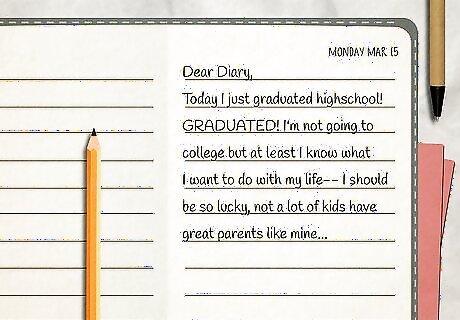
Keep the details fresh so you can look back at them. If you got an award, graduated from high school, got a new job, or moved into a new home, write about it! You’ll be able to look back on your experiences and remember how good you felt during them. You might also write about getting a new sibling, making a new friend, moving to a new school, or getting a new pet. Think of your diary as a gift to your future self. What would you like to read in the future as a reminder of your life?
Jot down things about ordinary days.
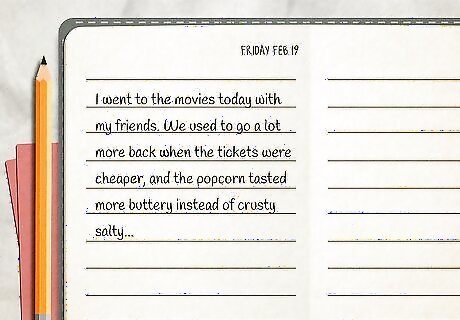
Not every day has to be extraordinary. If you want to use your diary every day, make it a point to write down things about the normal days, too. Even if you just went to school or hung out with a friend, it might be a nice memory to look back on some day. Things like having a picnic in the park or taking your dog on a walk can be fun to write about, too. What seems ordinary today could very likely seem extraordinary to you in the future. Nothing you write in your diary is boring.
Work through your emotions.
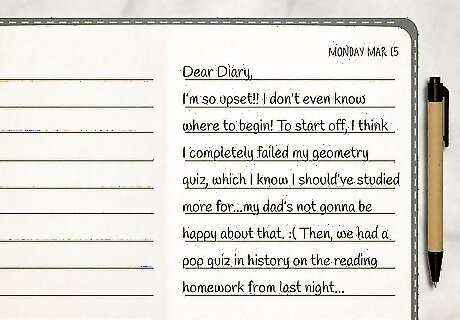
Your diary can help you in times of stress and sadness. If you’re having a bad day, if you got in a fight with someone, or if you just feel super down, write about it in your diary. It can help you process what you’re feeling and why, exactly, you’re feeling it. A diary can be really useful when you’re angry, too. Getting your thoughts down on paper before talking to someone you’re mad at is a great way to express your emotions without saying anything you might regret.
Collect photos and keepsakes.

Use glue or tape to keep momentos in your diary. You can write text to go with the items if you want, but it’s not a necessity. Include ticket stubs, snapshots of your friends, pressed flowers, and found objects. You can get even more creative and arrange these items into an artistic collage. Don’t be afraid to get super creative with it. If you feel like rubbing dirt into your diary one day, do it! This is your space to use as you’d like to.
Keep track of your dreams.
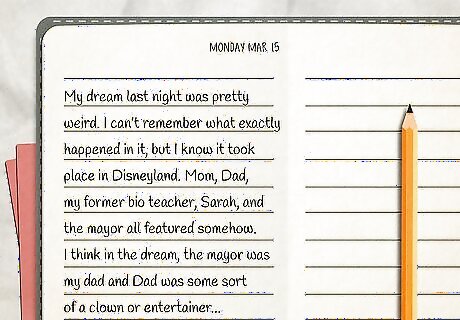
Look back on all the crazy things you dream about. Keep your diary close to your bed and use it to record your dreams every morning. Try to write down the details of your dreams as soon as you wake up, since they can be incredibly fleeting. You can keep a separate diary just for dreams, or you can enter them into your regular diary. If you enter them into your every-day diary, it might be helpful to write them down in a different color of ink, just to keep them entirely separate from other entries.
Practice drawing or art.
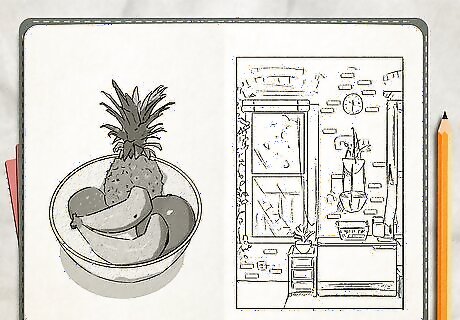
Use your diary as a creative space to express yourself. Feel free to write poetry, put down song lyrics, and record quotes from others that are meaningful to you. Some people express themselves best through art, and that is a completely valid way to use your diary, too. Experiment with drawing, painting, collecting found objects and creating collages in your diary, especially if you find that the words aren’t flowing.
Write down your goals.
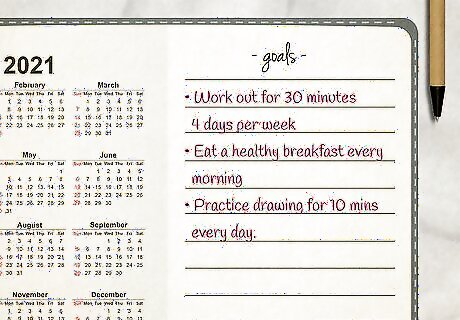
Put your goals into words to make them more concrete. You can jot down goals both big and small, long-term and short-term. Describe them clearly and make them actionable so they’re easy to follow in the future. You could write down goals like: “Work out for 30 minutes 4 days per week,” “Eat a healthy breakfast every morning,” “Practice drawing for 10 minutes every day.”
Create to-do lists.
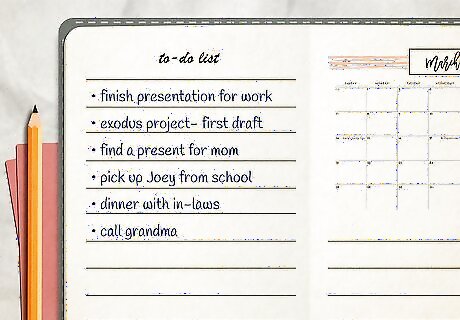
Keep track of everything you need to do, either daily or weekly. You can make daily lists of simple things you need to get done, or you can create to-do lists for more long-term goals. Whether you’re trying to accomplish a certain goal, solve a particular problem or simply plan out your day, they are all much easier to tackle once you’ve broken them down into smaller tasks. You can also use your diary to set a schedule for yourself.
Track your successes.
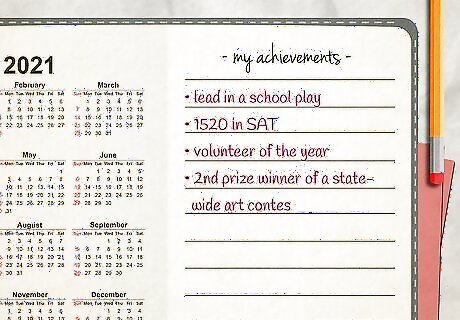
When you achieve a goal, write it down! Sometimes it feels like you’re spinning your wheels when it comes to getting something accomplished, especially if it’s something big. Your diary is a written account of what you’ve done along the way and functions as an excellent log of your progress. Progress can be hard to measure objectively and sometimes it's easy to forget successes you’ve already had.
Look back on older entries.
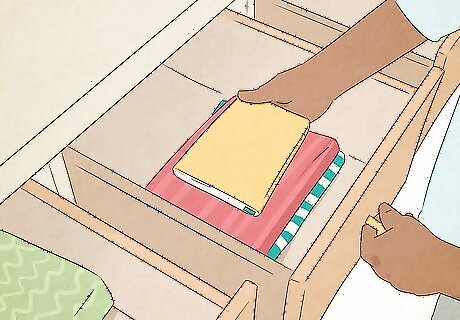
As time goes by, your perspective might shift and change. It can be fun to have a look at older entries from months or years past. Try going back every now and then to see how far you’ve come since you first started your diary. This is a fun way to go down memory lane, too!
Keep your diary private.
It will help you stay honest and true when you write in it. Put it somewhere that your parents or siblings can’t find it: a closet, a drawer, or under the bed. If you know that you’re the only one reading your entries, you’ll be much more likely to use your diary all the time. If you’re super worried about someone else reading your diary, get one with a lock on it. Or, keep an online diary in a password-protected folder.




















Comments
0 comment